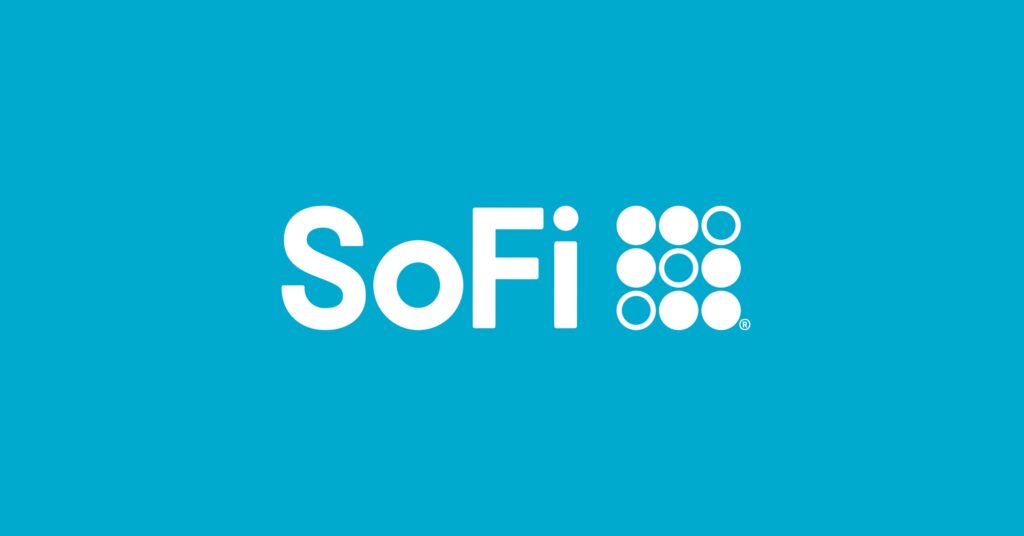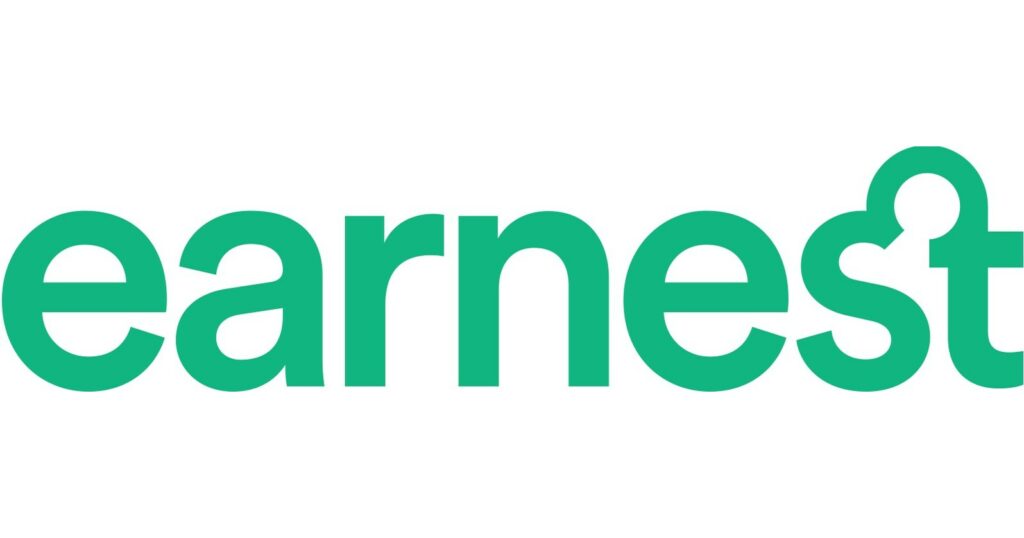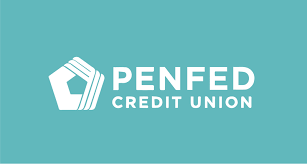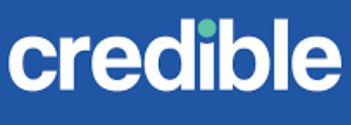In 2021, the average person with student loans owed $37,113 and had to make monthly payments of $393. For plenty of borrowers, paying nearly $400 per month is a big burden and can add to their financial stress. If that’s you, don’t worry. You have options that simplify the process of paying back your student loan debt while also lowering your monthly payment.
Whether you want to roll all of your loans into one, reduce your monthly payment or lower your interest rate, consolidating or refinancing your loans can be the way to go. Several student loan refinancing companies exist. We’ve rounded up 10 of the best to help you find one that works for you.
Table of Contents
Here are the 10 Best Student Loan Refinancing Options
If you want to refinance your education loans, it pays to shop around to find the lender with the lowest fees and rates. Some student loan refinancing companies also offer other perks to sweeten the deal, like discounts for automatic payments.
Here are the best refinancing lenders for school loans:
RISLA

You don’t have to live or have attended school in Rhode Island to qualify for refinancing from the Rhode Island Student Loan Authority (RISLA). RISLA refinances student loans used at any IV school in the US. While you can live in any state, you need to be a U.S. citizen or permanent resident to qualify.
One feature that sets RISLA apart from the rest is its option for an income-based repayment plan for those under extended financial hardship. This flexibility makes refinancing ideal for those struggling financially post-graduation. However, RISLA does not have a co-signer release program, and an estimate from them will cost you a hard credit check.
- Fixed APR: Rates range between 5.29% to 8.34%for the life of the loan, based on your financial history and credit score, the loan’s term and whether you have a co-signer or not.
- Minimum credit score: Not specified, but a credit check is required.
- Maximum loan amount: $100,000 to $250,000, depending on the highest degree earned.
- Origination fees: None
- Application process: Apply online. You can upload documents to your application, including the most recent loan billing statements, the 60-day payoff amount for all loans, paystubs or income verification, documentation of liquid assets and Forms W-2.
- Autopay discount: Yes, a 0.25% reduction in interest rate
- Prepayment penalties: None
- Eligibility requirements: Minimum annual household income of $40,000. You also need to meet certain debt-to-income requirements, pass a credit check and have savings. If you qualify for the income-based repayment option, your payments won’t be more than 15% of your monthly income.
- Repayment terms: 5, 10 or 15 years.
Pros
- Offers an income-based repayment option, which has loan forgiveness after 25 years
- No upfront fees
- Option to defer loan payments if you enroll in grad school
Cons
- Doesn’t allow you to release a co-signer when you refinance
- Loans used to pay for a for-profit school aren’t allowed
- No refinancing of PLUS loans
Who it’s best for
RISLA is ideal for borrowers who don’t have a co-signer and who are looking for flexible loan repayment options. It’s also a good option for borrowers who need an income-based repayment option.
Laurel Road

Laurel Road will refinance most types of student loans but targets people who work in health professions. The company offers special student loan refinancing rates to health professionals, including former medical, nursing, dental, and physician’s assistant students.
Laurel Road is also great for parents who’ve taken out Federal Parent PLUS Loans for their children and are stuck with a sky-high interest rate. Laurel Road is one of only a few companies that specifically offers refinancing benefits for Parent PLUS Loans, including a seamless transition of the loan into the child’s name.
- Fixed interest rates: Between 4.74% to 7.15%, based on your credit and the loan term.
- Variable interest rates: Between 14.24% and 7.05%, based on your credit and the loan term.
- Minimum credit score: 660
- Maximum loan amount: No maximum, you can refinance the entire balance on your student loan.
- Origination fees: None
- Application process: Apply online. You’ll need to provide documentation verifying your income and employment. Laurel Hill will let you know if you’re approved or denied, and the rate available. You then e-sign the disclosures and promissory note to finalize your loan.
- Autopay discount: 0.25% reduction in interest rate
- Prepayment penalties: None
- Eligibility requirements: You must be a U.S. citizen or permanent resident. You need to have earned a degree at a school that accepts financial aid. Usually, you’ll need to have at least a bachelor’s degree, but associate’s degrees are acceptable for certain professions. Laurel Hill doesn’t disclose its debt-to-income or income requirements.
- Repayment terms: 5, 7, 10, 15 or 20 years
Pros
- No prepayment penalty or upfront fees
- Others the option of refinancing to a fixed or variable interest rate
- Has special options for medical professions
- Refinances PLUS loans
Cons
- Deferment isn’t available if you decide to continue your education
- Not all degree programs are eligible for deferment
Who it’s best for
Medical professionals or parents who want to refinance PLUS loans. Borrowers who want to lower their interest rate and extend their loan terms.
SoFi

For comprehensive benefits and support, SoFi is an online lender that offers a ton of perks to help students successfully take on life after graduation. With a personalized approach, they offer career counseling and financial advisors to support students with tailored guidance for budgeting, saving, and investing in their post-graduate life.
SoFi also offers unemployment protection that will postpone your payments for three months at a time if you get laid off from your job.
- Fixed interest rates: Between 4.49% to 8.99% APR with an autopay discount. Rate is based on credit history and loan term.
- Variable interest rates: Between 4.49% to 8.99% APR with an autopay discount. Rate is based on credit history and loan term.
- Minimim credit score: 650
- Maximum loan amount: Up to the balance on your student loan
- Origination fees: None
- Application process: Apply online. You can check your rate first, then decide to proceed with the application. You’ll need to provide screenshots to verify income, employment and assets.
- Autopay discount: 0.25% reduction in interest rate
- Prepayment penalties: None
- Eligibility requirements: A strong monthly cash flow, employment or job offer that will start within 90 days, strong financial and credit history.
- Repayment terms: 5, 7, 10, 15 or 20 years
Pros
- Offers a matching rate guarantee and will give you $100 if another lender offers you a lower interest rate
- Offers fixed and variable interest rates
- Refinances parent PLUS loans
- Offers additional benefits, such as career coaching and financial advice
Cons
- Has a minimum refinancing amount of $5,000
- No option for removing a co-signer from a loan
Who it’s best for
Borrowers who want additional perks when they refinance and those who want the guaranteed lowest rate possible.
Discover

Compared with other lenders, Discover shines in its flexible repayment assistance programs that help borrowers who need wiggle room to pay back their loans. They also waive all of the annoying application and startup fees, and won’t even ding you with late payment fees.
Discover will refinance your loans even if you didn’t graduate, but it doesn’t offer the flexible term options available from other student loan refinancing companies.
- Fixed interest rates: Between 5.49 to 15.99% APR, based on credit history and repayment term
- Variable interest rates: Between 5.87 to 16.72% APR, based on credit history and repayment term
- Minimum credit score: Not disclosed, but some borrowers might need to add a co-signer to qualify
- Maximum loan amount: $150,000, but higher for certain professions
- Origination fees: None
- Application process: Apply online or by calling 1-800-STUDENT.
- Autopay discount: 0.25% reduction in interest rate
- Prepayment penalties: None
- Eligibility requirements: US citizen or permanent resident and over age 18. You need to pass a credit check and have enough income to afford your monthly payments.
- Repayment terms: Not specified
Pros
- You can consolidate or refinance your loans with Discover even if you didn’t graduate
- There are no late fees
Cons
- There’s no option for checking your rate without a hard credit check
- Parent PLUS loans aren’t eligible
Who it’s best for
Those who didn’t complete a degree program and who need some flexibility with their payments.
Citizens One

Citizens One is the national lending division of Citizens Bank, and is ideal for current bank customers, international students, and those who didn’t complete their degree.
If you are already banking with Citizens Bank, you can take advantage of their 0.25% interest rate discount for existing account holders.
They’re also a good option for international students, as they refinance loans for non-US citizens and students who aren’t permanent residents – with a qualifying co-signer. However, keep in mind that they have a somewhat complicated process for students who need to take over their parents’ loans.
- Fixed interest rates: Between 5.39% to 11.88% APR, based on credit history and loan term
- Variable interest rates: Between 5.09% to 11.67% APR, based on credit history and loan term
- Minimum credit score: Not specified
- Maximum loan amount: $300,000 for bachelor degree holders, $500,000 for graduate degrees and $750,000 for professional degrees
- Origination fees: None
- Application process: Apply online. Provide your social security number, monthly income, employer information, rent or mortgage amount and details about your current student loans
- Autopay discount: 0.25% reduction in interest rates
- Prepayment penalties: None
- Eligibility requirements: Need at least $10,000 in loans. Must be a US citizen, permanent resident or resident alien. If you didn’t complete a degree or earned an associate’s degree, you need to have made at least 12 payments on your loan after leaving school.
- Repayment terms: 5, 7, 10, 15 or 20 years
Pros
- Offers an autopay discount and an additional discount to borrowers who have a bank account with Citizens
- Refinancing is available to people who didn’t graduate
- Co-signer release is available
Cons
- Minimum loan amount is $10,000
Who it’s best for
Borrowers who already use Citizens Bank and borrowers who didn’t complete their degree.
LendKey

LendKey is a marketplace that uniquely connects lenders with private loans from credit unions or local community banks, rather than big banks. So if you prefer to work with a smaller institution than one of the larger banks, LendKey is a great option.
They’re also a solid choice for borrowers who don’t earn 6 figures, as their average borrower earns around $60,000 per year, and they offer longer forbearance than many other lenders.
- Fixed interest rates: Ranges from 3.99-10.68% APR with autopay discount
- Variable interest rates: Ranges from 4.00 to 7.60% APR with autopay discount
- Minimum credit score: 660
- Maximum loan amount: $125,000 for bachelor’s degree, $175,000 for graduate degrees and $300,000 for certain medical degrees.
- Origination fees: None
- Application process: Apply online. Provide proof of income, identification and the details of your current loans.
- Autopay discount: 0.25% reduction in interest rate
- Prepayment penalties: None
- Eligibility requirements: Need to be a US citizen or permanent resident who’s graduated from an eligible degree program. You need to meet certain income and credit requirements, too.
- Repayment terms: Terms between five and 20 years are available.
Pros
- Forbearance is available for some borrowers if they are facing a hardship
- Rate check is available without affecting your credit
Cons
- Minimum loan amount starts at $5,000 and is higher in certain states
- Parents can’t refinance PLUS loans
- Some lenders on the platform charge late fees
Who it’s best for
People looking for options and flexibility when refinancing and borrowers with high loan balances.
Earnest

Earnest offers student loan refinancing with flexible repayment terms and relatively loan interest rates. It’s an online lender, meaning its application process is streamlined and efficient.
Earnest claims to take a holistic approach to application reviews. It looks at your earnings potential, savings and education level achieved.
One notable feature of Earnest is its Client Happiness Team. The lender aims to go above and beyond when it comes to providing borrowers with stellar customer service. Earnest also allows you to set up bi-weekly payments and to skip one payment per year.
- Fixed interest rates: Start at 4.47% with an autopay discount
- Variable interest rates: Start at 4.14% with an autopay discount
- Minimum credit score: 650
- Maximum loan amount: Up to 105% of the loan’s balance
- Origination fees: None
- Application process: Apply online. Provide income verification, identification and other details.
- Autopay discount: 0.25% reduction in interest rate
- Prepayment penalties: None
- Eligibility requirements: Need to be a US citizen or permanent resident. Need a credit score of at least 650. Need to be current on student loan payments as well as other obligations.
- Repayment terms: Customizable loan terms available, usually between five and 15 years
Pros
- Earnest looks at factors beyond your credit score and income when considering your eligibility, which might benefit borrowers with lower incomes or less-than-good credit
- You can skip up to one payment annually
- You can set up autopay to pull payments every two weeks, which helps you pay off your loan sooner
Cons
- Earnest only refinances loans in 48 states. It’s not available in Kentucky or Nevada
Who it’s best for
Borrowers who are looking for a hands-on, customer-service-focused refinancing option.
Penfed Credit Union

If you prefer to work with a credit union for student loan refinancing, PenFed Credit Union might be your choice. It offers competitive fixed interest rates and flexible repayment terms.
In the past, you needed to be associated with the military to have an account with PenFed, but that’s no longer the case.
- Fixed interest rates: Between 7.74 to 9.93%, based on loan term and borrower’s credit history.
- Variable interest rates: N/A
- Minimum credit score: 670, but higher loan amounts require a higher score
- Maximum loan amount: $300,000
- Origination fees: None
- Application process: Apply online. Provide income or employment verification, identification, proof of graduation and current loan details. You also need to submit an application to become a credit union member.
- Autopay discount: None
- Prepayment penalties: None
- Eligibility requirements: Need to be a member of PenFed Credit Union, but you can join when you apply for refinancing. Need to be a US citizen with at least a bachelor’s degree.
- Repayment terms: 5, 8, 12 or 15 years
Pros
- Maximum fixed interest rate is lower than average
- Allows married couples to refinance their loans together
- Allows you to refinance parent PLUS loans
Cons
- You need to be a member of PenFed to refinance
- Has a minimum loan amount of $7,500
Who it’s best for
Borrowers who prefer to work with a credit union and couples who want to combine their student loans.
Best Student Loan Refinancing Marketplaces
Before selecting a lender to refinance your student loans, you’ll want to shop around to ensure you’re checking all the right boxes. That’s where our next picks come in. No. 10 and 11 on our list aren’t traditional lenders at all. Instead, they’re financial marketplaces. These can be a good starting point if you’re looking for the lowest rates and aren’t totally sure what other features are best for your financial situation
Splash Financial

Splash Financial isn’t an individual lender. Instead, it’s a student loan refinancing marketplace that lets you shop around for the best rates and terms. When you apply through Splash, you can review offers from several lenders all at once.
- Fixed interest rates: Varies from lender to lender, but starts at 4.39%
- Variable interest rates: Varies from lender to lender, but starts at 3.99%
- Minimum credit score: Can vary but usually 650
- Maximum loan amount: Lenders usually don’t have a maximum loan amount
- Origination fees: None
- Application process: You apply through Splash online. The documents you need to provide vary by lender but typically include proof of income and identification.
- Autopay discount: Typically 0.25% reduction in interest rate
- Prepayment penalties: None
- Eligibility requirements: Varies by the lender. You typically need to be a US citizen or permanent resident with a four-year degree from an accredited school. Different lenders have different income and credit requirements.
- Repayment terms: 5, 7, 10, 15 or 20 years
Credible

Like Splash Financial, Credible is a refinancing marketplace that essentially does this work for you, offering you quotes from multiple lenders once you submit your information. It’s a free service to use, and won’t impact your credit score.
They also promise to find you the lowest interest rates, and offer a handy best-rate guarantee. If you do find a lower rate and end up refinancing elsewhere, they’ll hand you a $200 Best Rate reward.
- Interest rates: Like Splash Financial, rates vary by lender but start at 3.99%
- Minimum credit score: Can vary but usually 640
- Maximum loan amount: Lenders usually don’t have a maximum loan amount
- Origination fees: None
- Application process: You apply through Credible online. The documents you need to provide vary by lender but typically include proof of income and identification.
- Autopay discount: Typically 0.25% reduction in interest rate
- Prepayment penalties: None
- Eligibility requirements: Varies by the lender. You typically need to be a U.S. citizen or permanent resident with a four-year degree from an accredited school. Different lenders have different income and credit requirements.
- Repayment terms: 5, 7, 10, 15 or 20 years
Pros of Using a Marketplace
- It makes it easy to connect with multiple lenders at the same time
- You can check interest rates without a hard credit inquiry
Cons of Using a Marketplace
- Rates and terms can vary widely depending on the lenders available
Who it’s best for
Borrowers who want to shop around but who also enjoy a streamlined process.
What is Student Loan Refinancing?
When you refinance, you take out one loan and use it to pay off existing loans. Student loan refinancing means you’re taking out a loan, usually from a private lender, and using it to pay off existing federal and private loans.
Student loan refinancing can simplify the loan repayment process, as it combines multiple loans into one. That means you have a single monthly payment to worry about.
Refinancing also gives you some flexibility. You can extend your loan term to take advantage of lower monthly payments. You also usually get a lower interest rate when you refinance.
If you want to accelerate your loan payoff, you can do so through refinancing. Refinancing to a shorter loan term will mean higher payment each month but less spent in interest on your loans in the long run.
Student loan refinancing is sometimes confused with student loan consolidation, but the two aren’t the same. When you consolidate loans, you combine them into one. If you consolidate federal loans, you can still take advantage of the perks offered by the federal student loan program.
To learn more about student loan refinancing, check out this video:
Should You Refinance Your Student Loans?
Refinancing can help to reduce your interest rate or make your loan payments more manageable but it’s not right for every borrower.
If you have federal student loans and decide to refinance them with private student loan products, you lose access to all of the benefits connected to federal loans. That includes loan forgiveness for certain professions and, in some cases, forbearance options if you have a hardship.
This will be pertinent in times when the government is offering additional student loan forgiveness programs and leniency (such as the current payment pause that’s in effect until at least May 1, 2022, due to COVID-19), so just be aware of any benefits you may be giving up when you refinance.
If you’re frustrated with high interest rates on your federal loans, however, refinancing privately at a low rate may be a wise choice. And if you find yourself overwhelmed by numerous loans every month that never seem to diminish, refinancing streamlines them all into one payment – so the end goal can come clearer into sight!
The following are a few good reasons to refinance your student loans:
- Reduce your interest rate
- Pay off your student loans sooner
- Extend your payment term if needed
- Combine multiple loans into one monthly payment
- Change lenders for other reasons (customer service, personal preference, etc.)
- Switch from a loan with a variable APR to a fixed APR.
- Your annual income has decreased
- Add or remove a cosigner
Am I Eligible For Student Loan Refinancing?
You generally need a credit score in the good or higher range to be eligible for student loan refinancing.
Other factors determine your eligibility:
- Credit score: This is the most significant factor playing into whether you’ll be approved for a refinanced student loan.
- Loan balance: Lenders will look at the total debt you have left to pay off when assessing your eligibility for a new loan.
- Minimum income: Lenders want to see that you have enough income to pay back your loans before they’ll guarantee you a lower interest rate.
- Debt to-Income Ratio (DTI): Your DTI is a number representing how high your debt is compared to how much income you earn. If your outstanding debt vastly outweighs your income (a high DTI) you’ll be less likely to secure refinancing, while a low DTI makes you much more appealing to potential lenders.
- Education: You might need to have completed a four-year degree to qualify for refinancing, although some lenders accept associate’s degrees in certain fields. Some lenders also let people who didn’t finish a degree refinance.
What Credit Score Do You Need to Refinance Your Student Loans?
Your credit score gives a lender an idea of your creditworthiness and borrowing risk. Usually, student loan refinancing companies want to lend to borrowers with scores above 680, though the minimum score can vary.
The higher your credit score, the more access you’ll have to a wider diversity of refinancing options.
Before you apply for any student loan refinancing, review your credit report and credit history, and check to see if there are any errors on your credit report that could be driving down your credit score. Make sure you’re making on-time payments for all of your accounts.
In order to access a decent amount of lenders, you’ll generally want your minimum credit score to be around 680.
If your score is lower, you will most likely need someone to cosign your loan.
What Is the Difference Between Student Loan Consolidation and Student Loan Refinancing?
Refinancing and consolidation are two completely different things. Consolidating your federal student loans means combining them into one federal loan. Consolidation is only available for federal loans.
Refinancing combines your federal and/or private loans into a new private loan. That can lead to a significant change in interest rates. Federal student loan interest rates are set by the government, while private interest rates are set by each individual loan company.
The most important difference between refinancing and consolidation is that refinancing can help you achieve a lower interest rate, while consolidation usually does not.
If you consolidate your federal loans, there’s a chance your interest rate will go up. Still, consolidating can be a strategic move since it simplifies your payments and lets you retain access to federal loan perks.
When you refinance you lose federal loan benefits, but can take advantage of lower interest rates. To compete with the federal student loan program, some private lenders offer perks such as loan forbearance or autopay interest rate reductions.
Can You Refinance Federal Student Loans?
There’s no federal student loan refinancing option. Once you refinance, your student loans become private loans.
Keep in mind that by refinancing federal loans, you’re giving up any federal benefits and setting yourself up with a new system privately.
Student Loan Refinancing Rates
The annual percentage rate for refinancing student loans varies by lender. It also varies based on the interest type and other features. For that reason, it can be worthwhile to shop around with various refinance lenders to see which one has the lowest rates.
Some of the factors that influence interest rates include:
- Whether the rate is variable or fixed: Variable rates often start out lower but can increase in time.
- Your credit score: Borrowers with higher scores are less risky for lenders. They often get the best interest rate.
- The loan term: You’ll get a higher interest rate with a longer loan term, since the longer you need to pay, the riskier you look to a lender.
Student Loan Forgiveness
Student loan forgiveness is, for some borrowers, the holy grail. When your student loans are forgiven, you’re no longer obligated to pay them.
Usually, loan forgiveness is available for federal student loans. To qualify for forgiveness, a borrower needs to meet certain criteria. For example, there is a public service loan forgiveness program or teachers’ loans can be forgiven after a certain number of payments or a specific number of years in the profession.
Loan forgiveness isn’t refinancing. When your loans are forgiven, they’re gone. You’re no longer responsible for paying them.
The Bottom Line
Student loan refinancing can be the right option for you if the interest rate on your current student loans is high or if you have a mix of private and federal loans and want to streamline your payments.
Carefully consider the cost of refinancing and the difference you’ll pay over time. It might be that keeping your loans as they are is the better option for you. Or, you could save a significant amount of time and money with a student loan refinance.
FAQs
CommonBond was a popular student loan refinancing company, but they stopped issuing student loans in 2022 as the company changed its focus to specialize in solar loans for families who are installing solar panels. CommonBond says it plans to continue to support its current customers, and recommends NelNet Bank for anyone interested in refinancing.
A direct consolidation loan combines multiple federal direct loans into one. Direct loans come right from the US Department of Education. When you consolidate direct loans, you make a single monthly payment.
It’s not the same as refinancing, as it doesn’t allow you to combine private and federal loans and might not lower your interest rate.
Yes, you can consolidate student loans and credit card debt. One option is to take out a personal loan and use it to pay off your credit cards and student loans.
Keep in mind that your interest rate might increase and you’ll lose any benefits of the federal loan program if you consolidate student loans and credit card debt together.
Underwriting is the process by which a lender agrees to issue payment in exchange for risk. During underwriting, a lender will review your income, employment and credit to determine how risky you are as a borrower and what sort of interest rate to charge you.
A fixed-rate loan has an interest rate that remains the same throughout the loan’s term. A variable rate can change, either increasing or decreasing, during the loan’s term. Usually, variable rates change on a set schedule, such as once a year.

